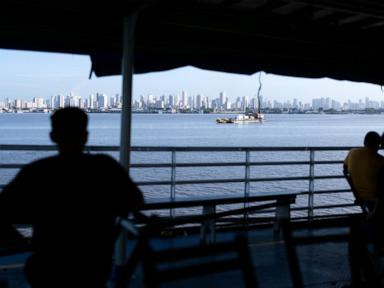Rising Costs Threaten Participation at UN Climate Summit in Brazil

As the United Nations climate summit, known as COP30, approaches in Belem, Brazil, concerns are mounting regarding the affordability of participation for many delegates and activists. With costs skyrocketing, especially for accommodation, individuals like Pooja Tilvawala, founder of the Youth Climate Collaborative, are taking significant financial risks to ensure youth representation at the pivotal event.
Tilvawala has invested over $46,000 of her personal savings to create a housing portal designed specifically for young participants. With less than two months until the summit scheduled for November 2023, only about 36% of the 196 participating countries have confirmed their attendance and secured lodging, according to a spokesperson for the conference presidency.
The Brazilian government selected Belem as the host city to highlight challenges faced by developing urban areas. However, the surge in hotel rates, with many charging several hundred dollars per night, has led to a worrying trend where many prospective attendees are reconsidering their plans. “There’s always a huge number of fossil fuel company representatives there. And who’s going to be there to combat those voices?” Tilvawala said, emphasizing the need for youth voices in climate negotiations.
In response to the housing crisis, Brazilian Climate Minister Marina Silva announced that between 10 and 20 rooms will be made available at “accessible prices” for vulnerable countries. Additionally, two large cruise ships have been secured to accommodate up to 6,000 participants. Silva stated, “Everybody will have access to participate in COP30. Facing climate change must be done by all of us.”
Despite these efforts, Simon Stiell, U.N. Climate Change executive secretary, sent a letter on September 9, 2023, urging U.N. agencies to review their attendance and minimize the number of representatives sent to COP30. The situation has been compounded by a construction workers’ strike that began on September 15, affecting preparations for the summit and adding to the uncertainty surrounding accommodations.
Local stakeholders initially welcomed the opportunity to host the conference. Arnaldo Vaz Neto, a financial advisor in Brazil, noted that hospitality is ingrained in the culture. However, the high international standards set by the United Nations have made it challenging to balance expectations for both the local community and international visitors.
The accommodation crisis is not unique to Belem. Similar patterns have emerged at past U.N. climate conferences, with lodging prices often inflating to three or four times the usual rates. “A lot of people here are expecting to charge $1,000 a night, but that’s beyond the average,” said Hugo Pinheiro, who assists in matching delegations with housing.
The “accessible” rooms made available by the government will range between $200 and $600 per night, according to a COP30 presidency spokesperson. Despite Brazilian officials’ confidence that all 196 nations will find housing, the reality remains grim for many. The presidency has projected 50,000 participants, but Belem currently offers 53,000 beds, which is fewer than at previous conferences.
The rising costs are particularly burdensome for representatives from poorer nations and Indigenous groups, as well as activists and NGOs who traditionally attend COP meetings. Organizations like Care About Climate, led by Hailey Campbell, are facing unprecedented difficulties in securing accommodations. Campbell noted that her group has “never faced such difficulties with access to accommodation,” and they have taken to social media with the hashtag “#DontPriceUsOut” to raise awareness of the issue.
As the summit nears, the sentiment among potential attendees is increasingly uncertain. Many individuals have already decided against attending, while others remain unsure. Hikaru Hayakawa, executive director of Climate Cardinals, has noted a higher number of individuals opting out than in previous years, estimating that around 30 to 40 people have already chosen not to attend. This shift could result in a significant loss of opportunities for activists to build vital global networks.
The escalating costs and logistical challenges surrounding COP30 have raised serious questions about the inclusivity and effectiveness of the upcoming talks. As the world grapples with the urgent need for climate action, ensuring that diverse voices are heard remains a critical challenge.






